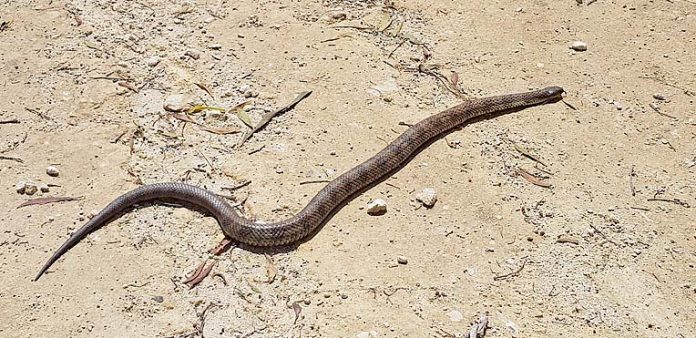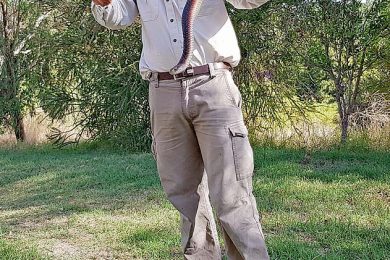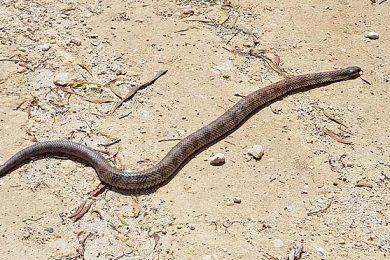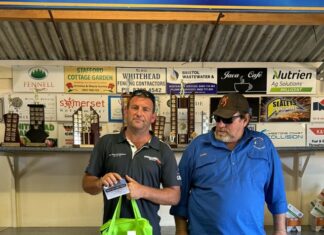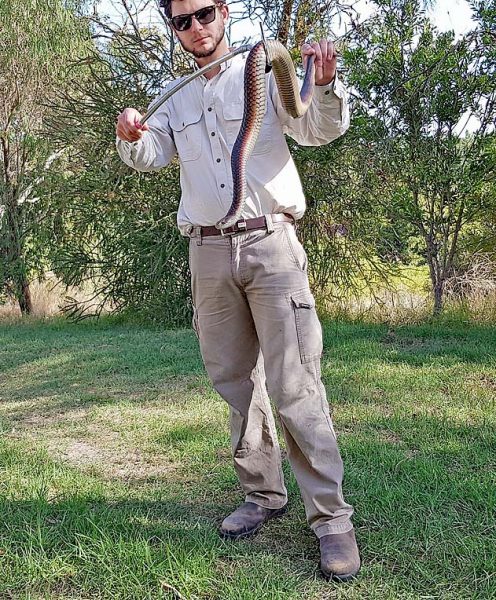
THE South East’s snake population has risen from its winter slumber, which has triggered a spate of snake sightings and bites, particularly among pets, in the Millicent district.
Locals are urged to be vigilant as Tiger, eastern brown, lowland copperhead, little whip and white lipped snakes – all of which are venomous – are starting to explore farmland, lakes, swamps and freshwater springs.
Limestone Scales Reptile Relocation snake catcher Jake Manser said residents could take a number of precautions to ensure the safety of their properties and animals.
“People should be aware snakes are actively searching for food and water this time of year,” he said.
“They should clean up anything outside that may attract a snake, which can include water bowls for pets, kids’ paddling pools, piles of wood or scrap metal and vegetation low to the ground.
“They should also keep the lawn mowed so that if there is a snake passing through they are more likely to notice it and trim shrubs so the lowest limbs are 30cm or more above the ground.
“Solar powered snake deterrents have been tested by snake catchers and they do not work, so spend your money wisely on tidying up the yard instead.”
Mr Manser said although snakes were commonly found in rural areas, community members living on residential streets should also remain vigilant.
“Rural areas typically have more rodents, birds, frogs and things that snakes like to eat, which is why we find more around native scrub or farmland,” he said.
“Sometimes snakes may get accidentally transported into residential areas or have been disturbed during things like housing development.
“This is why we still find them occasionally in residential areas.”
If a person comes across a snake they are advised not to approach it as it is more likely to attack if it feels threatened.
Instead they should back away slowly or if the reptile is in a place where it may be dangerous to pets or people, keep an eye on it from a distance and call a snake catcher.
Any person or pet who is bitten by a snake should seek medical treatment immediately – at the hospital or veterinary clinic respectively.
A person should bandage their entire limb, starting from the toes or fingers with medium to firm pressure and should lay down or sit still.
“The reason for this is because the venom of Australian snakes moves through the lymphatic system or muscle tissue,” Jake said.
“The more you flex your muscles, the more the venom moves.
“Bandage the bite, mark the bite area on top of the bandage with texta or pen and call an ambulance.
“Do not tamper with the bite by washing it or trying to suck out venom.
“If there is indeed venom in or on the wound it will be used to identify the appropriate anti venom to treat you.”
Jake added that in his time working as a snake catcher he had never actually been bitten and said the average number of snakes he catches depends on the season.
“Last season I caught around 15, which was more than I expected, two of which were on the same job,” he said.
“After I have contained a snake, I drive them to the closest suitable environment away from houses and release them.
“They are native animals, which play an important role in the ecosystem so I am very careful not to injure them or stress them out too much.”
Residents who find a snake in an enclosed area such as a fenced backyard, shed or house should contact a snake catcher immediately.
They should keep their distance and consider if the snake can escape on its own or if it is likely to be a hazard for children or pets.
There are a number of businesses in the region qualified, licensed and insured to catch snakes.

